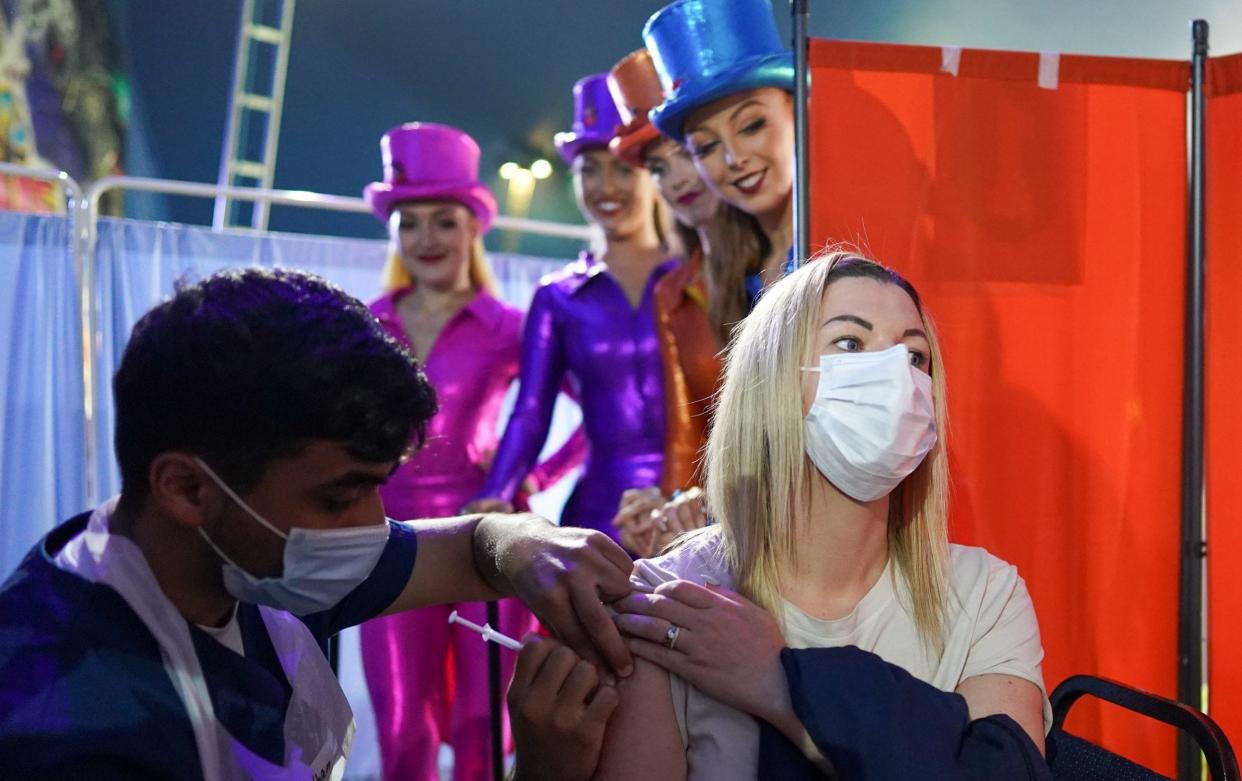Rise in teenage take-up has put vaccine passports on ice... for now

When Boris Johnson vowed to introduce vaccine passports by this autumn, it seemed there was little that would dissuade him from the scheme, which he termed “a matter of social responsibility”.
Now, although ministers have not ruled out immunity certification entirely, it certainly will not go ahead in September as promised.
So, what changed the Government’s mind?
New figures released on Thursday from the Office of National Statistics (ONS) may provide the answer. Between the Prime Minister’s press conference on July 19 and the end of August, vaccination rates among 16- to 24-year-olds in England shot up from 53 to 73 per cent.
Antibody testing shows that nearly nine in 10 people in that age group now carry antibodies to coronavirus, either through a jab or a previous infection.
Antibody rates are even higher among 24- to 34-year-olds, with more than 95 per cent now carrying some protection to coronavirus. Vaccine rates among this group have also risen slightly in recent weeks, and now stand at 91 per cent.
Such high levels of protection against the virus in younger people means that vaccine passports are now likely to do little good.
The ONS figures are also more than a fortnight out of date, so vaccination and antibody rates are likely to have increased again in that time.
“The number of people with antibodies remains high across the UK adult population, with younger adults seeing the largest increase since the end of June,” said Sarah Crofts, the head of analytical outputs for the ONS Covid-19 Infection Survey.
“This is most likely due to more people in this group being vaccinated, but some will have developed antibodies from infection during wave three.”
Vaccinating schoolchildren
The other change that has happened since the Prime Minister’s press conference is that vaccines for 12- to 15-year-olds have been given the green light.
Vaccine passports were mooted at a time when the Joint Committee on Vaccination and Immunisation had just ruled against giving vaccinations to under-16s.
There are about 13 million under-16s in Britain, which means that even with a perfect vaccine uptake, only 80 per cent of the population could ever be vaccinated, making it vital to get jabs in the arms of as many over-16s as possible.
But this week, Sajid Javid, the Health Secretary, ruled that the rollout will now include children over the age of 12, which could have a major impact on reaching the elusive goal of herd immunity.
Booster jabs, also given the go-ahead this week, should tackle the problem of waning antibody immunity in older people, keeping overall protection high.
Cynics may argue that the Government never intended to introduce the scheme, and merely made the announcement as a nudge to encourage more children to take up the offer of vaccination.
It was certainly never popular among Tory backbenchers or the nightclub industry, which warned it could leave them open to discrimination cases. Ed Davey, the leader of the Liberal Democrats, called the idea “divisive, unworkable and expensive”.
Downing Street has stressed that the plan would be kept “in reserve” in case it will be needed over the autumn or winter. However, Mr Javid said this week that he “never liked the idea of saying to people you must show your papers”.
Whether the Government has bowed to popular opinion, or just realised vaccine passports are no longer necessary, Britain has won back its right to boogie without restrictions. And that’s worth raising a glass to.

 Yahoo News
Yahoo News 
